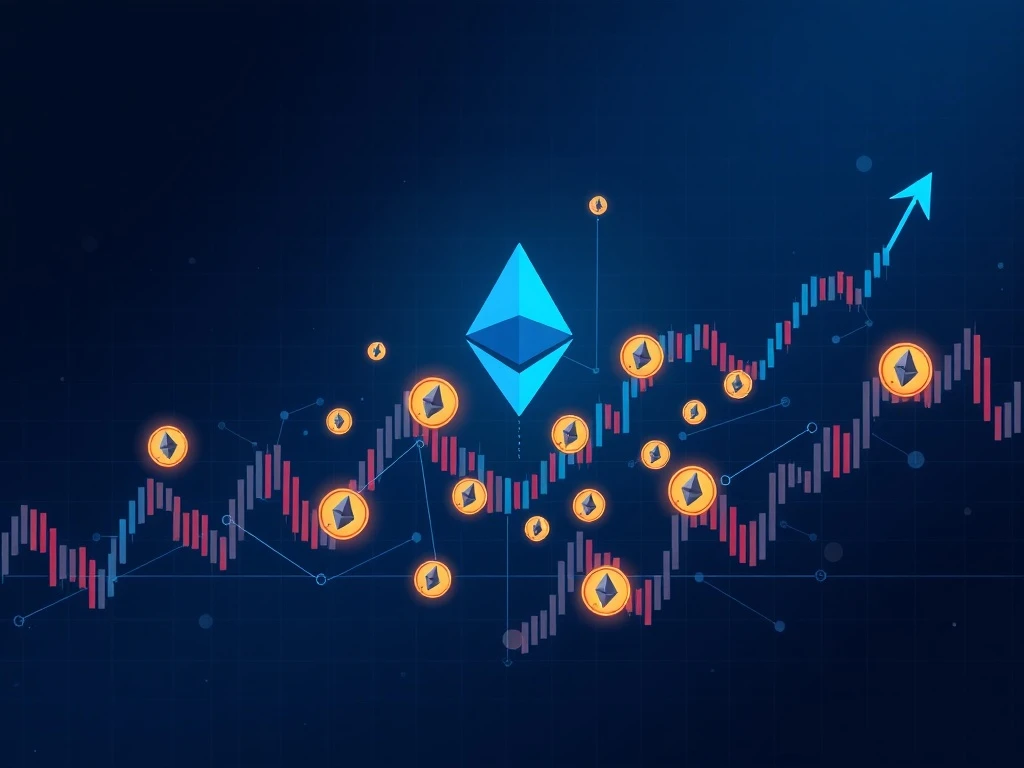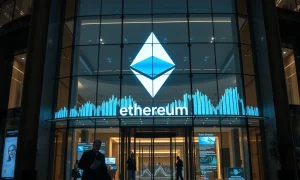The financial world is witnessing an unprecedented transformation as tokenized stocks on Ethereum bridge traditional equity markets with decentralized finance. This revolutionary convergence enables global investors to access major equities like NVIDIA and Tesla with 24/7 trading, fractional ownership, and DeFi yield opportunities previously unavailable in traditional markets.
What Are Tokenized Stocks on Ethereum?
Tokenized stocks represent real-world equities converted into ERC-20 tokens on the Ethereum blockchain. Platforms like xStocks by Backed Finance collateralize these tokens 1:1 with underlying stocks, ensuring full asset backing. Consequently, investors gain exposure to traditional equities while benefiting from blockchain technology’s advantages. These digital assets trade continuously across global markets, breaking free from traditional exchange hours. Moreover, they enable fractional ownership, making high-value stocks accessible to smaller investors. The infrastructure supports instant settlement and transparent ownership records.
Ethereum’s Infrastructure Powers Tokenized Equity Revolution
Ethereum’s $90.8 billion Total Value Locked positions it as the ideal foundation for tokenized stocks. The network’s robust DeFi ecosystem integrates seamlessly with protocols like Aave and Compound. Additionally, recent Dencun and Pectra upgrades reduced gas fees by 99%, enhancing scalability. Multi-chain expansion to Solana and BNB Chain aggregates liquidity across networks. This infrastructure supports 60+ tokenized assets with real-time trading capabilities. Furthermore, Ethereum’s security features ensure asset protection throughout transactions.
DeFi Yield Opportunities with Tokenized Stocks
Tokenized stocks unlock exceptional yield generation through DeFi integration. Investors currently earn average yields of 8.2% compared to traditional banking’s 2.1%. Liquidity pools pairing stablecoins with blue-chip tokenized equities achieve up to 9.8% APY. Platforms like Aave hold $14.6 billion in active liquidity pools. Staking mechanisms through EigenLayer enable cross-chain asset utilization. This creates capital efficiency opportunities previously unimaginable. Investors simultaneously benefit from price appreciation and passive income.
Global Adoption and Retail Investor Growth
Geographic adoption surges in underbanked regions where DeFi accessibility proves most impactful. Southeast Asian platforms serve 41 million users across 200+ countries. Latin American markets adopt tokenized stocks through local payment rails. Retail participation grows exponentially with 312 million active DeFi users. First-time user access increases 39% year-over-year. Notably, 61% of users are under 35, indicating generational shift. Mobile wallet integration drives accessibility for emerging markets.
Regulatory Landscape and Future Projections
Regulatory frameworks evolve to address tokenized securities challenges. The EU’s MiCAR and U.S. CLARITY Act provide developing guidance. Current limitations include potential absence of voting rights and dividend claims. However, market projections indicate massive growth potential. The tokenized securities market could reach $6.5 billion by 2033. North America and Asia-Pacific lead adoption efforts. Institutional participation increases as regulatory clarity improves.
Conclusion: The Future of On-Chain Equity Investing
Tokenized stocks on Ethereum represent a fundamental shift in global capital markets. They democratize access to traditional equities while introducing DeFi benefits. The technology enables 24/7 trading, fractional ownership, and enhanced liquidity. However, regulatory alignment and investor education remain crucial for sustained growth. As adoption accelerates, tokenized equities could capture significant market share. The convergence of traditional finance and blockchain technology creates unprecedented opportunities for global investors.
Frequently Asked Questions
What are tokenized stocks?
Tokenized stocks are digital representations of traditional equities issued as blockchain tokens. They track the price of underlying stocks while enabling blockchain-based trading and DeFi integration.
How do tokenized stocks differ from traditional stocks?
Tokenized stocks trade 24/7 on blockchain networks, enable fractional ownership, and can be used in DeFi protocols for yield generation, unlike traditional stocks limited to exchange hours and conventional trading.
Are tokenized stocks legally equivalent to traditional stocks?
While tokenized stocks track underlying equity prices, they may not confer voting rights or dividend claims depending on the issuing structure and regulatory compliance of the platform.
What yields can investors expect from tokenized stocks?
Through DeFi integration, tokenized stocks can generate average yields of 8.2% compared to traditional savings accounts offering 2.1%, with liquidity pools achieving up to 9.8% APY.
Which regions show highest adoption of tokenized stocks?
Southeast Asia and Latin America lead adoption, with platforms serving 41 million users across 200+ countries, particularly in underbanked regions seeking alternative financial access.
What regulatory challenges do tokenized stocks face?
Tokenized stocks face regulatory uncertainty regarding voting rights, dividend distribution, and securities compliance, though frameworks like MiCAR and CLARITY Act are addressing these challenges.








